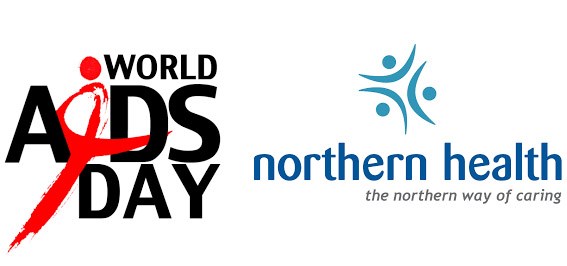Northern Health will make up to $180,000 in additional funds available to organizations who do HIV/AIDS outreach with a goal of improving the reach and impact of prevention, testing, treatment and support.
That is one part of an ongoing effort to support the Ministry of Health’s project dubbed “From Hope to Health,” which will mean working with primary care practices and establishing a regional HIV / Hepatitis C specialized care team.
That announcement came in conjunction with World Aids Day, Dec. 1, as Northern Health said it planned to “build on our current understanding about HIV transmission and treatment, while broadening the reach and impact of community services.”
The health authority said it would be building off of previous award winning efforts with the Prince George STOP HIV/AIDS pilot project and HIV101.
The authority said that despite the programs, HIV rates remain high across northern B.C. However, deaths related to HIV in the north dropped to 5 in 2014 from 13 in 2009.
“We know that awareness, testing and treatment are increasing, but some people are still unaware of their infection and some living with HIV and hepatitis C can be better supported”, said Ciro Panessa, chronic diseases regional director, in a release.
“We will continue to involve the most knowledgeable and most affected people to ensure that we can prevent new cases of HIV and keep people who already have the disease healthy; we are confident our approach with accomplish this goal.”
The plan, available online at HIV101.ca, “focuses on preventing new infections from happening by being more proactive about safer sex and harm reduction distribution and recovery, timely and more easily accessible testing to catch new infections early, and supporting people to maintain treatment so that infections do not progress to AIDS,” the release said.
A July 2015 report, called Seek and Treat for Optimal Prevention of HIV Progress Report, showed a 39 per cent increase in testing between 2009 to 2014 in northern B.C., and the rate of testing growing in each year.
Point of care testing is now offered at eight Northern Health and First Nations Health Authority sites in order to offer “a fast and simple screening for HIV antibodies using a small amount of blood from a person’s finger” with results available within minutes.
HIV testing is included as part of regular blood work at more facilities, including Fort St. James, Vanderhoof and Fraser Lake, starting the spring of 2014.
“We continue to look at methods to expand and support this practice,” the release said.
“People need to be aware that there is effective treatment available to them if they do contract HIV, and that we’re here to support them throughout their lives,” “ said Dr. Abu Hamour, Northern Health’s lead for blood borne pathogens, in a statement.



